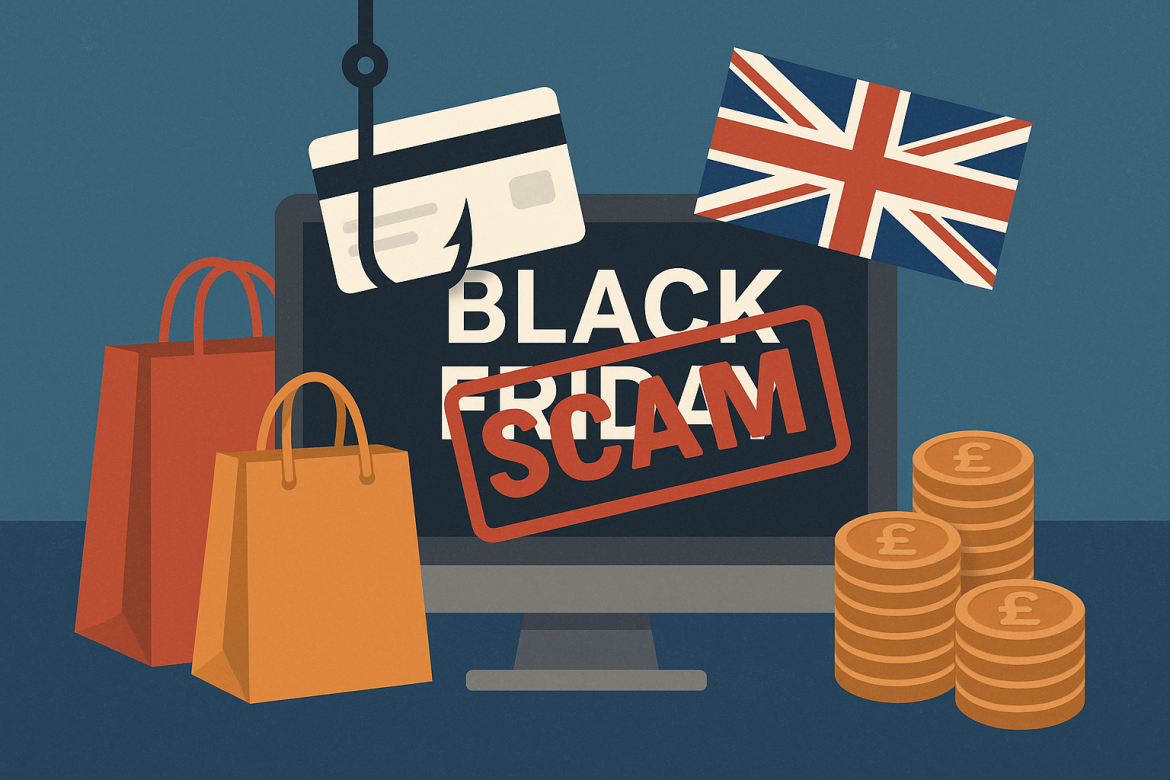Shoppers across the UK heading into the Black Friday weekend are entering one of the most vulnerable points in the financial year, according to new research from Compare the Market.
The findings show that this single retail moment accounts for a significant share of annual scams, as criminals exploit seasonal pressure, fast browsing, and heavy online traffic.
The study also highlights how widespread financial fraud has become, how people respond to it, and the emotional impact it leaves behind.
The data builds a clear picture of a rising threat that intensifies whenever spending increases.
Losses and emotional strain grow
The timing of scams highlights how seasonal patterns influence criminal behaviour.
A quarter of respondents say there is no clear trend, but major shopping periods show noticeable spikes.
15% say they were targeted around Christmas and New Year, while 12% faced scams during Black Friday and the January sales.
These patterns reflect how scammers mirror seasonal marketing and use familiar branding to trick shoppers.
The report points to the dangers people face while browsing for offers.
Fake websites and misleading ads often resemble genuine brands, making it difficult to distinguish between real and fraudulent pages.
Consumers are encouraged to stay cautious, especially during busy sales windows when rapid decisions are common.
Financial loss remains a major issue across the UK. Over a third say they lost between £1 and £499 to scams.
One in five reports losses between £500 and £1,999. In more severe cases, one in ten say they lost between £2,000 and £9,999.
These figures show how quickly scams escalate during peak spending periods.
Online fraud rises in seasonal rush
The research examines how scams affect people across the UK and which types are most common.
More than one in five people say they have been directly impacted by financial fraud, and online shopping scams now represent the largest share of these cases.
Almost half of the respondents say they are unsure whether they have ever been scammed, showing how quickly fraud can be missed during rapid online purchases.
Nearly a third say they have been affected by an online scam.
Despite this, many feel confident they can recognise one in the future, with three-quarters saying they believe they could identify suspicious activity.
Scam types widen across regions
The regional breakdown shows how fraud affects major UK cities.
Manchester respondents report the highest rate of scam experiences, followed closely by London, Nottingham, and Cardiff.
The data reflects how scammers focus on areas with heavy digital spending and active online consumer behaviour.
Online shopping scams remain the most common type of fraud, affecting more than one in five people.
Fraudulent listings, fake sellers, and misleading product offers dominate this category.
Social media scams follow, drawing in people through deceptive posts and adverts.
Advanced fee fraud also ranks high, with individuals persuaded to pay upfront for services or goods that never appear.
The post Black Friday: research shows this weekend is prime time for scammers appeared first on Invezz

